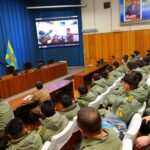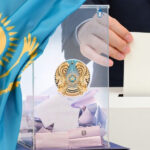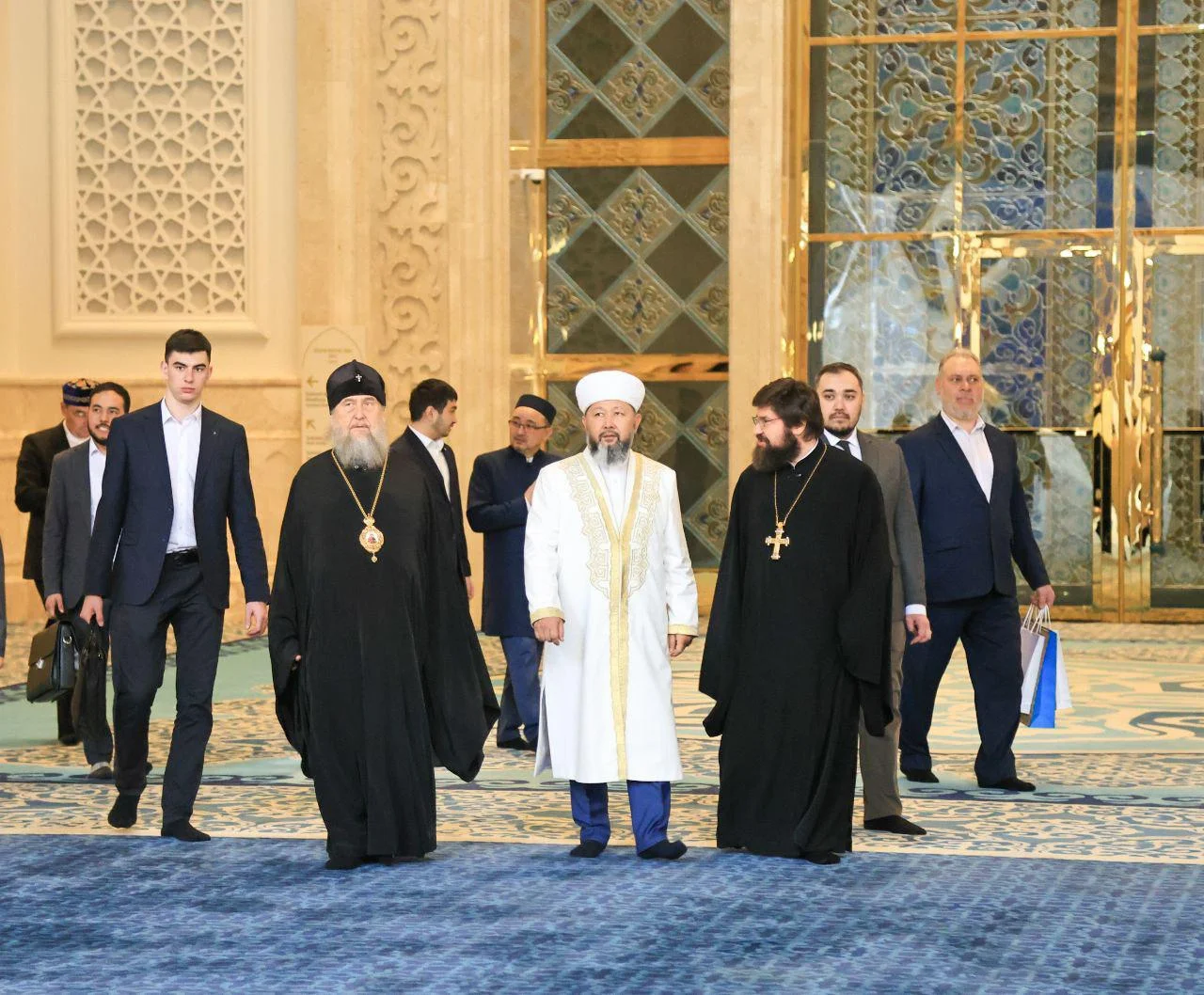We explore how to fast in a way that does not harm health and spiritually uplifts.
Ramadan is a month of fasting and prayer in Islam, which holds deep religious significance for Muslims. The Great Lent is the main fasting period for Orthodox Christians, dedicated to spiritual purification, unity with God, and is the most strict and long-lasting of all multi-day fasts throughout the year.
In 2024, an interesting coincidence occurred, with Ramadan and the Great Lent happening almost simultaneously. The sacred month for Muslims began on March 11 and will last until April 9, while Orthodox Christians are fasting from March 18 to May 4.
Main Rules: Oraza
The foundation of Oraza, the Muslim fast, is spiritual growth, abstinence, and reflection. A faithful person should analyze the past year, understand what they have done good and bad, and how to make their life more spiritual, righteous, and God-fearing.
Fasting is one of the pillars of Islam, and enduring its hardships is perceived as one form of worshiping Allah.
The month is sacred for Muslims because it is believed that the Quran was revealed during Ramadan. It is also believed that during this time, the Almighty grants people His mercy, accepts prayers, and forgives sins. Therefore, it is important not only to adhere to a special diet but also to pray and perform good deeds. Helping the needy, being sensitive and responsive to the needs of others is considered a virtue, as is feeding a fasting person after sunset.
Nutrition
During daylight hours, believers refrain from eating, drinking any liquids, including water, smoking, and intimacy. The pre-dawn meal is called suhoor, and the evening meal after sunset is called iftar. There are no restrictions on food and products, except for those that are haram on regular days. It is recommended to start the evening meal with a glass of warm water and dates to avoid overloading the body after a day of abstinence. During the evening and night, it is advisable to drink more water and include soup in the diet to maintain the body’s water balance.
The main task is to cleanse oneself of bad thoughts, habits, and spiritual growth. It is noted that it is pointless to follow a dietary regimen during fasting if a person continues to commit sinful acts. In Ramadan, it is important to distance oneself from worldly distractions, spend more time in solitude with oneself and worship the Almighty. In addition to namaz (five daily prayers), Muslims perform tarawih – a voluntary prayer during fasting.
Elderly people, pregnant women, nursing mothers, minors, the sick, and those performing heavy physical labor are exempt from fasting. If you are going on a long journey, you can break the fast for the duration of the trip and later make up for the missed days of abstinence at any other time before the next Ramadan. If a person cannot adhere to dietary restrictions, they can set a spiritual task for themselves during fasting: pray more, study the sacred scripture, give up harmful habits, etc.
End of Fasting
One of the last and most important nights of fasting is the Night of Power, or Қadyr túni, which this year falls on the night of April 5 to 6. It is believed that it was on this night that the angel Gabriel revealed the first surahs of the Quran to the Prophet Muhammad in the cave of Hira near Mecca. Muslims believe that on this night, angels descend from heaven, people ask for forgiveness for their sins, and read the Quran. One such night in prayer is equivalent to a thousand months of worship.
Before the end of fasting, every Muslim must give fitr-sadaqa — a mandatory payment that is one of the pillars of Islam and an integral part of the sacred month. In this way, a person not only helps the needy but also gives them the opportunity to celebrate the end of fasting. This alms cannot be given to relatives.
The Spiritual Administration of Muslims of Kazakhstan this year has set the amount of fitr-sadaqa at 640 tenge, based on the cost of two kilograms of flour. However, the amount can be higher, depending on the financial capabilities of the person.
At the end of fasting, Muslims celebrate Eid al-Fitr, which this year falls on April 10.
Main Rules: Great Lent
The Great Lent precedes the bright holiday of Easter and is a time for spiritual purification and growth.
During Lent, it is recommended to give up harmful habits, visiting entertainment venues, adhere to dietary restrictions, repent, and pray more.
The Great Lent is associated with the feat of Christ, who after His Baptism spent 40 days in the desert without food and water. The modern charter of the Church prescribes fasting for 47 days.
The Great Lent is divided into two periods: the Holy Forty Days and the Passion Week. It is believed that in the first half of the fast, believers become closer to God through repentance, prayers, and dietary restrictions. The Passion Week includes sermons, the Last Supper, Golgotha, and the Resurrection, when the Savior himself seems to move towards us, to celebrate together the main Orthodox holiday — Easter.
Nutrition
Throughout the entire fast, products containing meat, milk, eggs, and fish are prohibited (except for the Annunciation and Palm Sunday). The duration of the fast and the serious dietary restrictions can be challenging for most people, especially for those fasting for the first time. It is recommended to prepare the body thoroughly and consult a doctor.
Cheese Week, also known as Maslenitsa, which implies abstaining from meat a week before the start, helps to enter the fast more easily – this prepares the body for the Great Lent. The first and last weeks of the fast are the most strict; during this period, believers, whose bodies and spirits are ready, consume nothing but bread and water.
It is important to remember that fasting is not a diet; one should approach it sensibly and realistically assess one’s strength. Parishioners can discuss their concerns with a priest, who knows and feels the spiritual state of a person. The goal of the Great Lent is not the prohibition of certain products, but spiritual purification and repentance.
Strict fasting is not obligatory for minors, pregnant and nursing women, those engaged in heavy labor, and people with chronic illnesses. For those who cannot adhere to dietary restrictions, it is recommended to focus on spiritual growth along with those fasting: pray more, attend church services, help the needy, study the Bible.
«For pregnant and nursing women, physical fasting is not entirely appropriate. The very fact of caring for an infant, feeding it, sleepless nights by its crib, etc., carries the properties of physical fasting. Therefore, one should focus on spiritual fasting. Instead of watching a TV series, for example, turn on audio recordings of reading the lives of saints, sing prayers to the baby while rocking it, and perform a brief but sincere prayer in your free time. Guard your lips and ears from gossiping with friends. Restrain your reproaches towards a lazy husband.
For people with chronic illnesses, everything is individual. If a person has severe diabetes or an exacerbated stomach ulcer, then, of course, switching to bread and water is not advisable. I suggest a gentler option: exclude meat, and consume dairy products as medicine, without indulgence. Eating cake, ice cream, and cream fudge, citing a chronic ailment, is, admittedly, somewhat strange. Cottage cheese – yes, but not glazed curd bars with condensed milk.
If doctors insist on consuming meat, you can eat it too. Again, as medicine. I don’t think a doctor prescribes shashlik or manti with lamb and tail fat as therapy for a pancreatitis patient,» notes Archpriest Evgeny Ivanov, head of the Information Department of the Kazakhstan Metropolitan District.
Fasting Rules
Spiritual growth can begin with small steps. If you are just beginning your acquaintance with Orthodoxy, start with daily reading of the Psalter or a chapter from the Gospel. Visit the temple not once a month, but twice.
At least give up one harmful habit, such as gossiping or using swear words. It is important to sincerely repent, go to confession, and ask the priest how to deal with a particular sin so that at the end of the fast, there is real moral and spiritual growth.
If both spouses are fasting, they will likely abstain from intimate closeness during the Great Lent; if only one observes the prescriptions, the fulfillment of marital duty is not prohibited.
Do not forget that restrictions in a frivolous lifestyle do not cancel the joy of the beauty of the world, helping the needy, showing love, mercy, and compassion – all that gives life meaning and brings us closer to God.
Author: Alexandra Guzeva, APN









